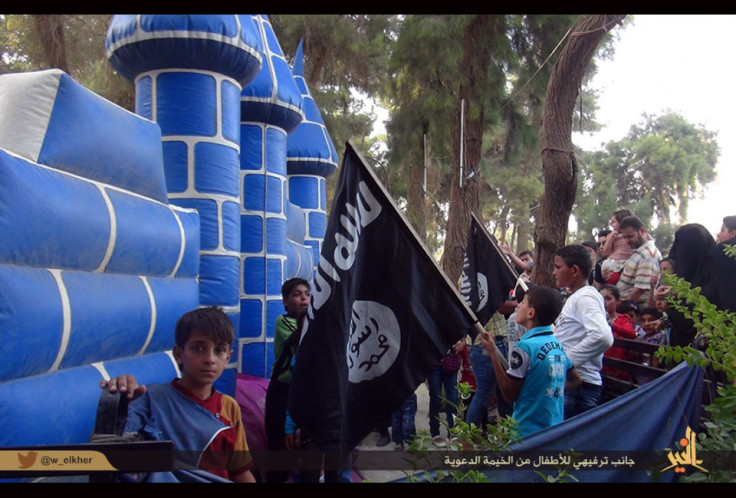Iraq Crisis: Isis Tweets Bouncy Castles in Charm Offensive for Hearts and Minds

The Twitter pictures that have brought them notoriety and instilled fear in thousands show shocking acts of brutality; beheadings, mass executions, and crucifixions.
Yet Islamic State, the jihadist group, which has seized control of swathes of Syria and northern Iraq, is now using its social media know-how to project a softer and more caring image, with images of bouncy castles for children and food handouts for those living within the environs of the Islamic caliphate.
For those who submit to its rule, the Islamist group has brought benefits and ammenities including clean water, steady electricity supply, and waste collection, as it fights to win their loyalties.
In the Iraqi city Mosul, the group reportedly gave out free gas and water supplies. They also removed security barricades that had been placed on roads, delaying commutes for hours.
In the Syrian town of al-Muyadeen, jihadis handed out food parcels and held a children's fair, complete with bouncy castle.
They indicate a recalibration of tactics by Abu Bakr al-Baghdadi's organisation, after locals turned against al-Qaeda linked groups during the American occupation of the country.
In 2005, al-Qaeda in Iraq leader Abu Musab al-Zarqawi was warned by the then deputy leader of the terror organisation Ayman al-Zahawiri, that his brutal tactics were alienating Iraqis.
"They were abusing the people they were governing. They were imposing very harsh rules, and they were going against tribal structures. Ultimately the local people turned against them," Peter Neumann, a professor of security studies at King's College London, told NPR.
"There was a huge amount of soul-searching going on within the movement afterwards," he says. "And the conclusion was that al-Qaeda would have to immerse themselves with the people rather than go against them."

In 2012, Nasser al-Wahishi, the al-Qaeda chief in Yemen, wrote to counterparts in Mali arguing that providing basic services was key to winning over populations.
"Try to win them over through the conveniences of life," he wrote. "It will make them sympathise with us and make them feel that their fate is tied to ours," he advised in one intercepted conversation.
In towns in southern Yemen al-Qaeda had taken over, they rebranded themselves Ansar al-Sharia, and took over the running of school and police forces.
Believed to be the richest terror organisation in the world, with assets estimated at $2 billion, Isis has also been recruiting highly-skilled and educated Muslims to help repair damaged infrastructures, including power stations and mobile communications networks.
For those who refuse to obey its narrow, fundamentalist interpretation of Islam, Isis imposes brutal punishment, with women accused of adultery stoned to death, and those belonging to other sects and religions who refuse to convert subjected to violence and forced to flee.
Barbers are reportedly forbidden to cut beards, and women forbidden from seeing male doctors.
But for those who obey its edicts, Isis' message is that they will be rewarded with security and all the finer things in life.
© Copyright IBTimes 2025. All rights reserved.




















